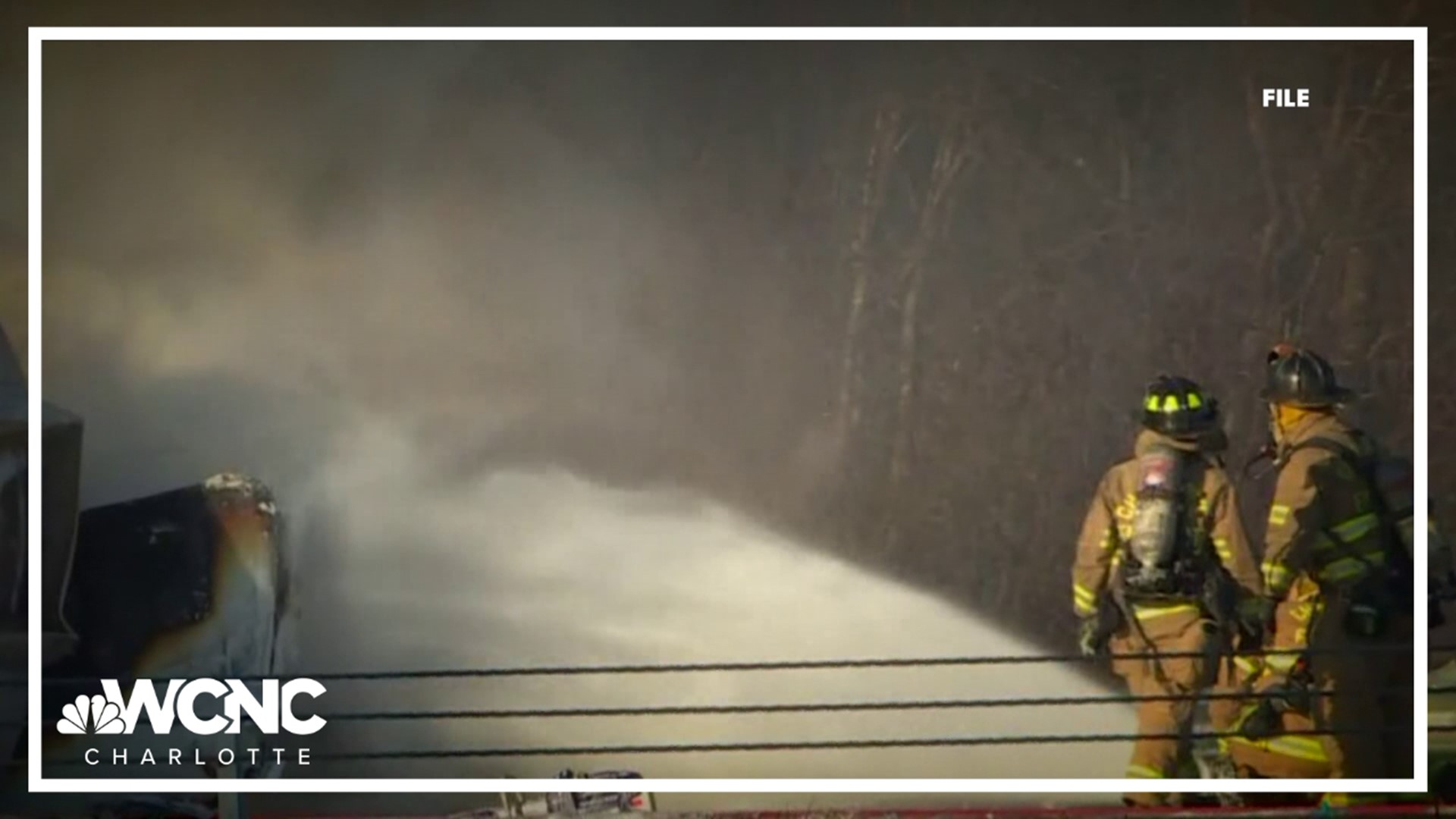CHARLOTTE, N.C. — Numerous ongoing lawsuits in North Carolina claim certain types of firefighting foam have contaminated the state's natural resources and may increase the risk of cancer for firefighters. Additionally, state lawmakers are trying to pass a bill this legislative session that would ban the toxic foam, yet fire departments are still using it.
At the Charlotte Police and Fire Training Academy, soil sampling has found high levels of forever chemicals from the use of firefighting foam. Researchers say long-term exposure to the foam may be dangerous for the environment and people.
Charlotte Firefighters Association president Tom Brewer said the foam is effective when battling certain metal and vehicle fires. However, for years, firefighters were unaware that many types of foam contain PFAS, or forever chemicals.
"We would actually wade through the foam," Brewer recalled.
According to the U.S. Fire Administration, long-term exposure to the toxic foam may increase the risk for thyroid disease and testicular, kidney, and bladder cancers.
"It puts out the fire, it could also put out a firefighter’s life," Brewer said.
He also noted the Charlotte Fire Department still uses the foam even though there are alternatives that don’t have PFAS in them.
"One of the big drawbacks has been the cost of these new foams," he explained.
The North Carolina Department of Environmental Quality told WCNC Charlotte the city of Charlotte is responsible for cleaning up contamination around the Charlotte Fire Academy.
Firefighting foam is also used at the Charlotte Douglas International Airport, where high levels of contamination have been found. NCDEQ said the U.S. Department of Defense is responsible for cleanup efforts there.
In 2021 and 2022, Attorney General Josh Stein filed several lawsuits against firefighting foam manufacturers for contamination across the state – arguing the companies knew it was dangerous and should pay for the cleanup. Those cases are ongoing.
"Now, we're at least cognizant of the facts and we can take extra precautions," Brewer said. "But still the biggest precaution we could take is just moving away from [toxic foam] totally."
The International Association of Firefighters says several states have banned most uses of toxic foam, including California, Colorado, and New York.
WCNC Charlotte reached out to Charlotte Fire and the city several times to ask about the use of firefighting foam and cleanup around the training site, but they have not responded at the time of publication.
Contact Julia Kauffman at jkauffman@wcnc.com and follow her on Facebook, X and Instagram.

